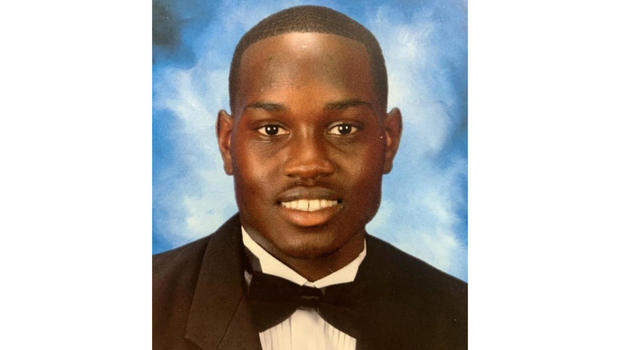Two of the three white men who chased and killed Ahmaud Arbery as he jogged through a Georgia neighborhood in early 2020 were sentenced to life in prison on federal hate crimes charges Monday. Travis McMichael, the man responsible for shooting Arbery, and his father, Greg McMichael, had already been sentenced to life in prison without parole for their roles in the killing during a state trial in Georgia.
Later Monday, William “Roddie” Bryan, the man who recorded the cellphone video of Arbery’s murder, was sentenced to 35 years in prison after his role in the deadly chase was ruled a felony of federal hate.
Months later the three men each received life sentences for murder in state court, the three men were sentenced Monday for federal hate crimes committed in the fatal pursuit of the 25-year-old black man.
AP
U.S. District Court Judge Lisa Godbey Wood scheduled back-to-back sentencing hearings for each of the defendants, beginning with Travis McMichael, who fired a shotgun at Arbery after the street chase started by his father and the which Bryan joined.
Arbery’s killing on February 23, 2020 became part of a larger national reckoning with racial injustice and the killings of unarmed black people, including George Floyd in Minneapolis and Breonna Taylor in Kentucky. Those two cases also prompted the Justice Department to file federal charges.
A jury convicted the three men in February of federal hate crimes, concluding that they violated the civil rights of Arbery and targeted him because of his race. All three men were also found guilty of attempted kidnapping, and the McMichaels face additional penalties for using firearms to commit a violent crime.
Any punishment they receive in federal court could ultimately be more symbolic than anything. A state Superior Court judge sentenced all three men to life in prison in January for Arbery’s murder, and both McMichaels were denied the possibility of parole.
All three defendants remain jailed in coastal Glynn County in the custody of U.S. marshals as they await sentencing following their federal convictions in January.
Because they were the first accused and convicted of murder in state court, the protocol would have them turned over to the Georgia Department of Corrections to serve out their life sentences in a state prison.
In a court filing last week, both Travis and Greg McMichael asked the judge to divert them to a federal prison, saying they would not be safe in a Georgia prison system that is the subject of a U.S. Department of Justice investigation focused on in the violence among the prisoners. .
Arbery’s family has insisted that McMichaels and Bryan should serve their sentences in state prison, arguing that a federal penitentiary would not be as harsh. His parents strongly objected before the federal trial when both McMichaels sought a plea deal this would have included a request to transfer them to federal prison. The judge rejected the plea deal.
A federal judge does not have the authority to order the state to turn over its legal custody of prisoners to the Federal Bureau of Prisons, said Ed Tarver, an Augusta attorney and former U.S. attorney for the Southern District of Georgia . He said the judge could ask the state corrections agency to hand over the defendants to a federal prison.
The McMichaels armed themselves with guns and jumped into a truck to chase after Arbery after seeing him run past their home outside the port city of Brunswick on February 23, 2020. Bryan joined the chase in the his own truck, helping to cut off Arbery’s escape. He also recorded cellphone video of Travis McMichael shooting Arbery at close range as Arbery threw punches and grabbed the shotgun.
The McMichaels told police they suspected Arbery had been stealing from a nearby house under construction. But authorities later concluded he was unarmed and had committed no crime. Arbery’s family has long insisted he was just going for a run.
Still, more than two months passed before any charges were filed in Arbery’s death. The McMichaels and Bryan were arrested only after graphic video of the shooting was leaked online and the Georgia Bureau of Investigation took over the case from local police.
During the February hate crime trial, prosecutors bolstered their case that Arbery’s killing was racially motivated by showing the jury roughly two dozen text messages and social media posts in which Travis McMichael and Bryan used racist slurs and made disparaging comments about black people. One woman testified that she heard a rant by Greg McMichael in 2015 in which he said, “All these black people are nothing but trouble.”
Defense attorneys for the three men argued that the McMichaels and Bryan did not pursue Arbery because of his race, but instead acted on a serious, if mistaken, suspicion that Arbery had committed crimes in their neighborhood.
Trending news
[ad_2]
Source link







